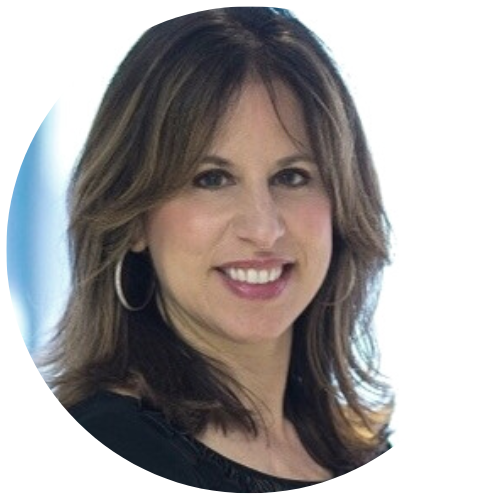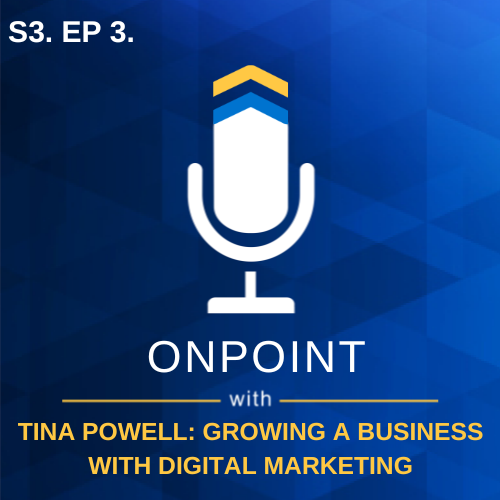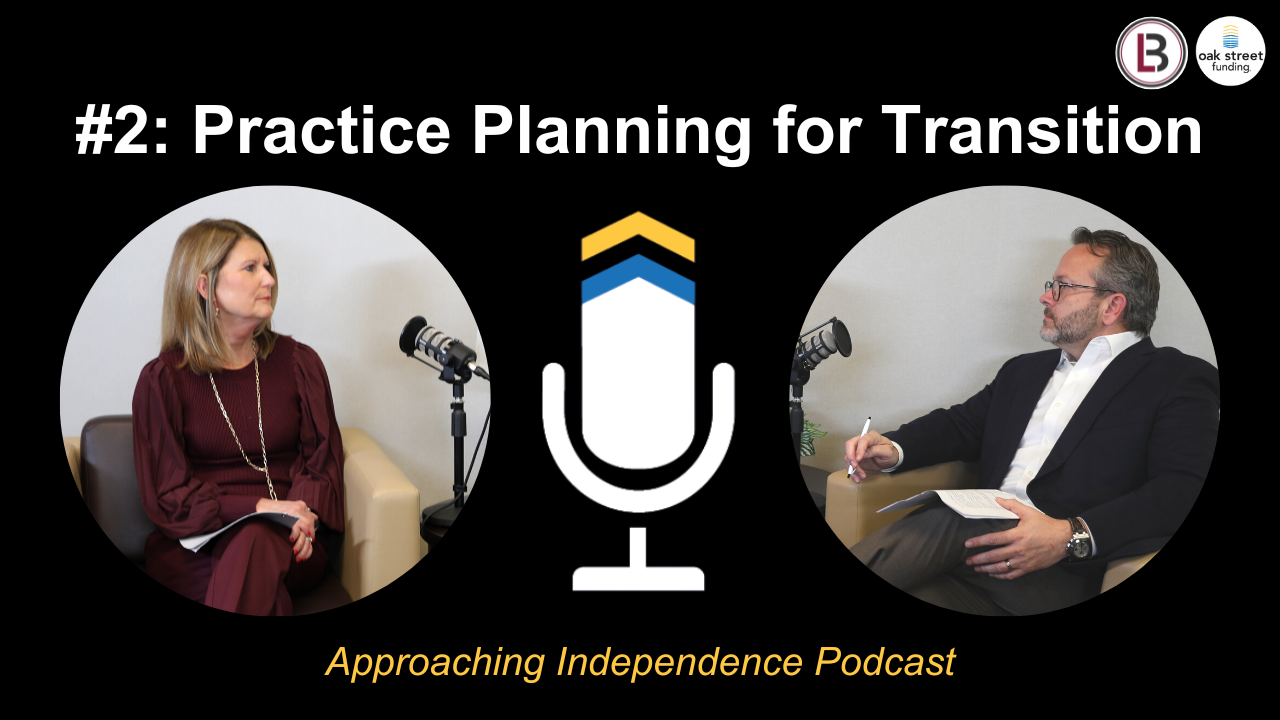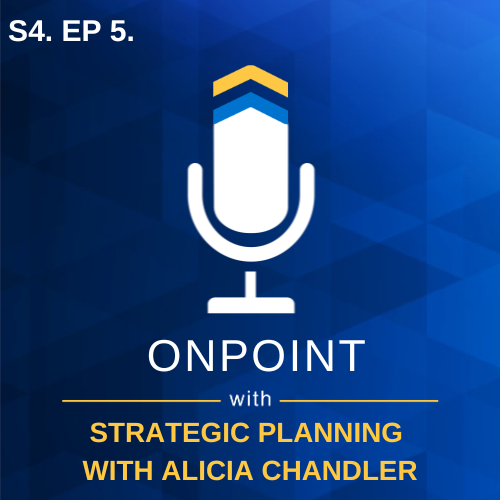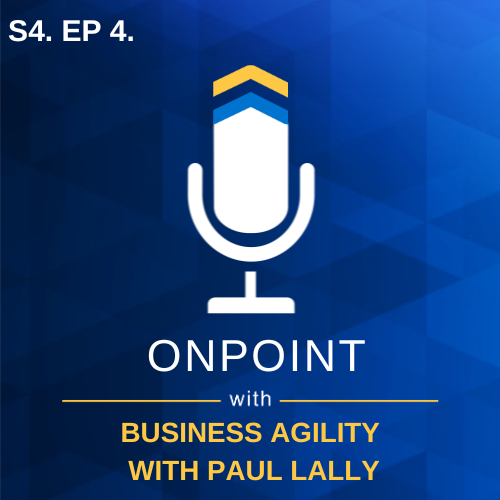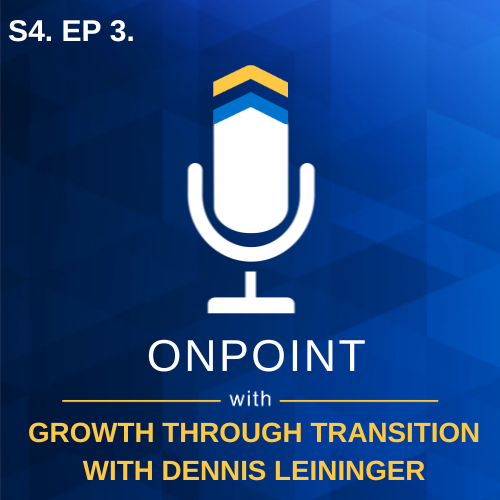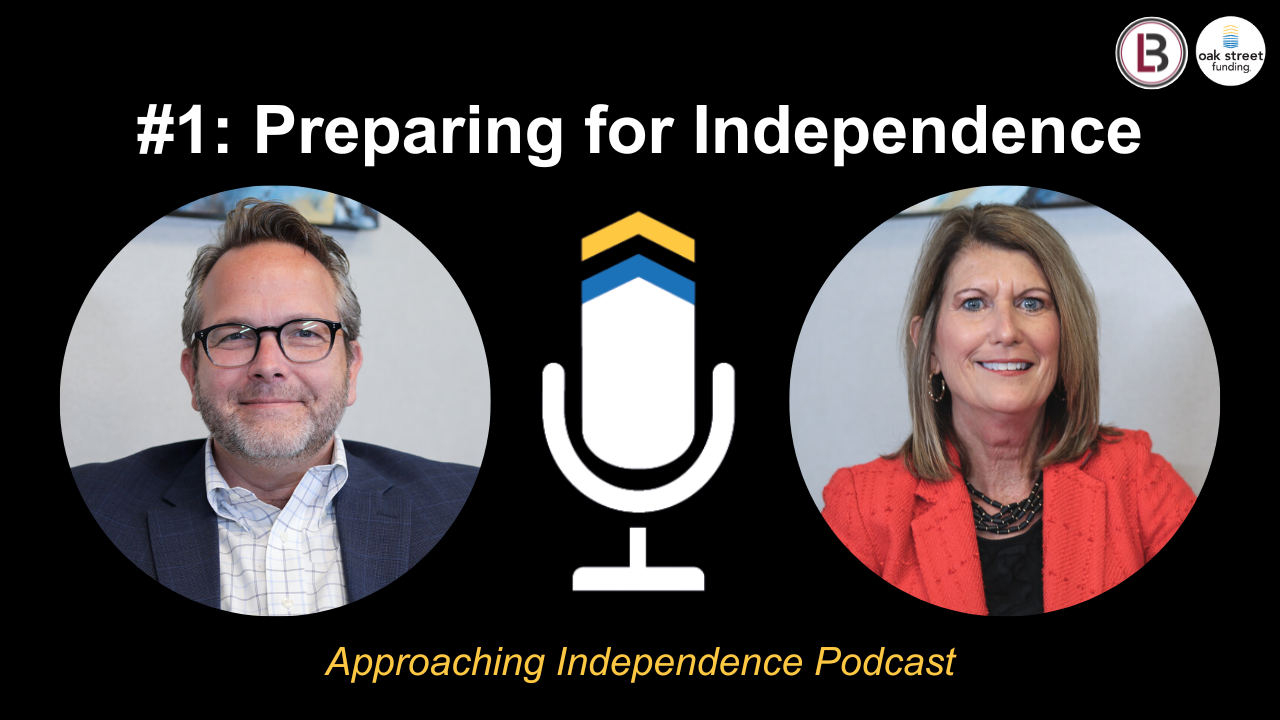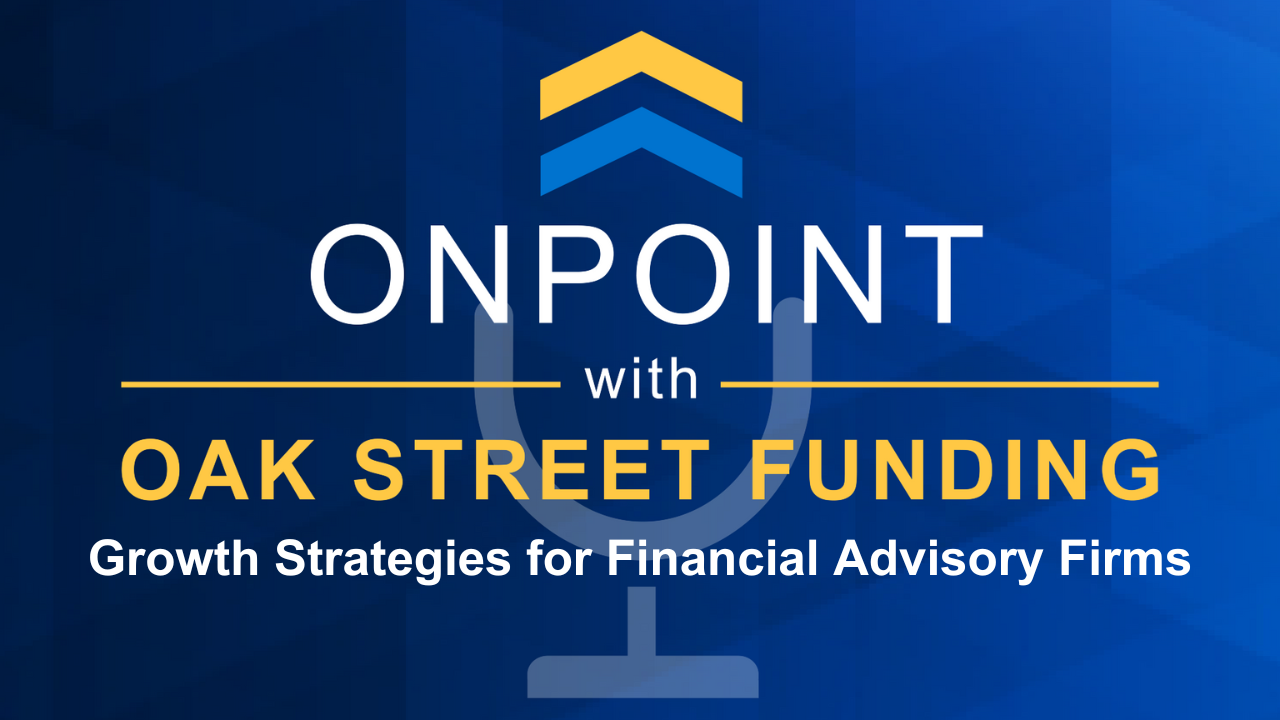S3. Ep. 3 - Growing a Business with Digital Marketing with Tina Powell of C-Suite Social Media
- 0.5
- 1
- 1.25
- 1.5
- 1.75
- 2
Bridget Haight: Hi, and welcome to OnPoint, a podcast by Oak Street Funding, where we bring research and data- backed insights to dig into the minds of industry leaders to learn how to stand out, navigate, and break through this ever- changing industry. I am your host, Bridget Haight, and you can support this podcast by following us on Spotify, Apple Podcast, on our website, or wherever you get your podcasts. We'll be there hanging out, talking to industry leaders and ready to empower you to grow your business. Now let's get on point. Today, Tina Powell, founder and CEO of C- Suite Social Media, joins us on the show. Tina is a digital leader, an influencer, and a host of her very own podcast titled In the Suite. As a small business owner, she has great insights to share with other business owners looking to grow. Welcome to the show, Tina.
Tina Powell: Thank you, Bridget. It's so fun to be here with you today. What an honor. Thanks so much.
Bridget Haight: I can't wait to-
Tina Powell: I really appreciate inaudible.
Bridget Haight: Yeah, thank you. And I've been going through these questions, and I cannot wait to hear what you have to say because I genuinely need to know. I need to hear expertise from your point of view. So tell us a little bit about yourself. How did you get started with C- Suite?
Tina Powell: Oh, boy. Okay. So how much time do we have?
Bridget Haight: We have 20 minutes. What can you do in two?
Tina Powell: Okay, good. Okay. Let's give the listeners, thank you so much for listening, the short version of the story. So I created C- Suite Social Media five and a half years ago, and that was because I came to financial services in 2006. Originally I was a partner in a wealth management firm, and we sold that firm, Bridget, to Mercer Advisors. A big shout out to Mercer Advisors, too. And so afterwards I wanted to continue doing what I was doing over at Beacon Wealth Management. I love marketing. I love this industry, social media. I wanted to just do what I was doing, but I also wanted to help more people. And so now I have the enormous pleasure of running C- Suite Social Media, digital marketing and social media agency, for financial services. We work with FinTech firms, and we work with advisory firms. We've got a small mighty dodgeball team of six people, and we're killer on the court.
Bridget Haight: That's perfect. Thank you so much. So what problem were you seeking to solve when you started your business?
Tina Powell: Yeah. So it all really dates back to my graduate work. So I have a master's from NYU, and in 2013, you can still see my capstone on the Social Science Research Network, and being that you're so on point, and this is a podcast, Oak Street Funding, I know that you love data and insights and research, so you can find my research on Social Science Research Network, it's on my LinkedIn, from 2013. And this is what I wanted to solve, Bridget, and that was that financial advisory was a little bit slow to the game and slow to adopt the principles of digital marketing and social media. And so I noticed that as soon as the Federal Reserve, the FINRA, the United States Securities and Exchange Commission, as soon as we started to see the larger organizations and financial institutions make a move into the social space. That's why I really felt that organizations and leaders needed to be hand held, not because they weren't smart and intelligent, but because this was an entirely different and a new domain and being that we have compliance. And so I was so passionate about bringing advisors and making sure that firms were on social so that they could reach the people who they needed to help. And Bridget, I was one of those people. My father had suffered a massive stroke. He spent the last five years of his life in a nursing home. And I felt that my family was really ill- equipped to handle that. And so I really feel intensely passionate about financial services and making sure that people have access to incredible advisors, and those advisors have access to research and firms that can help empower their practice so that they can go on to make a significant impact in the lives of other people.
Bridget Haight: Okay. It's a great answer. Thanks, Tina. So how did you come up with the name C- Suite Social Media?
Tina Powell: Yeah. So it goes back to the idea that any type of marketing effort, particularly growth marketing, is going to need buy- in from the C- suite. And I taught a class at NYU executive leadership, and what we noticed is that culture and leadership matters to the things that we do within our businesses.
Bridget Haight: Absolutely.
Tina Powell: Exactly, right? So if marketing and most particularly social media, which at one point, Bridget, advisors and people thought it was a fad, just like the internet... When the internet first, it was like," Oh. Yeah. How many people are really going to buy things over the internet? How many people are going to actually type in their credit card information into the internet?" Well, boy, those things happen. We're seeing the same thing with mobile payments, crypto. Any type of technology that is disruptive needs to be integrated at all levels of the organization but most particularly at the top of the chain of the command, which is in the C- suite. So that's how the name C- suite was... came up with it because unless that the C- suite has buy- in into what we're doing, there's a resource allocation, there's a tilt towards growth, there's a core competency to experiment, to break things, to be disruptive, to be wrong, because marketing is... not everything works, to be experimental and have that R& D allocation, that's the most important part of what we do. We only work with companies who have bold visions for the future, and what we do is truly integrated at the top of the organization.
Bridget Haight: Yeah. It's funny. You mentioned that people thought the internet was a fad. I'm dating myself, but I still think I've only recently realized that Instagram and Facebook and TikTok and all of it is not a fad. And in fact, people's entire lives and careers have been built on this, too. So I mean, think it's so fascinating. So, thanks. So the next question I have is, what is the mission or vision statement of your company, and how does that influence your decision making?
Tina Powell: It's an interesting juxtaposition of that question, Bridget. I like it. I'll tell you, the mission of C- Suite Social Media is to make every touchpoint matter. And what that means is that as an advisor, I'm sure there are many going to be listening to this great podcast that you have, OnPoint, everything that you do throughout the customer journey matters. Everything matters, how, as a prospective client, I find you online, how I'm able to do my own research about your company, the experience of what it's like to welcome, to be welcomed through the doors of your company or virtual as we saw through the pandemic. And so being that every touchpoint matters, we look at things through such a granular lens. We iterate to the nth degree. We try to be so precise and think about, not only just putting social media out there, but more importantly, Bridget, it goes around to the experience of what we want to deliver to people. Why are we using social media in the first place? We're not using it just to be a megaphone. Any business can do that. But we really truly want to deliver an experience. And in order for that to happen, we do have to think that every communication, interaction is a touchpoint. E- mail is a touchpoint. A website is a touchpoint. Even a telephone call, a conversation, you handing me a piece of literature, I, seeing you at a conference or perhaps speaking somewhere or on a webinar, for example, everything matters. And so when we work with the company, and we work with business leaders, we tend to pull them back a little bit before we do anything. And we analyze, analyze the customer journey, analyze prospect client journey. What does this successful journey look like? What is the journey that we want to replicate? And I would say companies really need to think about every single way that they touch a client and a prospective client and to ideate that, what worked, Bridget, in 2020, as we saw. We saw a big, huge recalibration of our society in the pandemic, but more importantly, like, hey, it's 2022. You and I, Bridget, a year from now, the conversation's going to be much different, but the touchpoints are going to be augmented differently in the future. And that's where we want business leaders. We want their heads to be... Every single thing, question everything. Rip it up. Start it all over again. Envision how you would create it if you were starting from brand new. That's the type of ideation we like to work on.
Bridget Haight: I love your passion and your energy about all of this. It's so inspiring. So what does strategic planning look like for you, and what tips do you have for other small business owners who might not be sure how to strategically plan?
Tina Powell: So strategic planning for us, if there's anything that we've learned I think in the last few years, it;s that strategic planning has to be a lot more tactical and short term oriented. And the most important thing, we've seen it with the labor shortage, i, myself, have, even as a business owner, experienced, there are two important things that drive that strategic plan. And the first is your people. It's people, people, people. And so it's great to have a long term focus, but I would say, and you ask me what my advice around that strategic planning, is that don't go so far out, six months, 12 months, one year, three years. I've really learned to be more in the moment than in the future because my resource allocation, people change. We have just such a dynamic economy right now, too. Interest rates are on the rise, the highest inflation that we've had in, what, 41 years. So the types of decisions that you make as a business owner are affected by a macroenvironment. We don't know what the macroenvironment's going to be in a year from now. And so all of these decisions take root in the macro. So I would say, be very careful about not having your strategic plan going too far out. The second part of this equation is the financial part of that equation. And the pandemic cost a lot of businesses to make some really bold decisions as some had to pivot, some had to go out of business, some had to borrow. So the second critical aspect of your strategic plan is your resource allocation. What are your finances like? And you need to be maniacal, maniacal about your cash flow and your P&L. I'll share with you, a big decision that I made was that I engaged with a part- time CFO. I'm in finance, right, but I found someone even better than me that could analyze every single little thing. And though we have QuickBooks, and we could run reports at any time, getting that 24/ 7, getting a real seasoned CFO to be looking at our books, that affects my strategic plan. I'm Italian, so it's like, I want to buy everything. I was told that my eyes are bigger than my stomach, and so I want to do everything. And my CFO now keeps me in line, make sure that my liquidity is there and our savings are there. Everything is aligned. So that's what I would say to business today. Be maniacal about your cash flow. Be maniacal about the types of people that you hire. Have great and bold visions for the future, but be more strategic in the short term and be experimental. Your strategic plan should in include some sort of R& D component to it.
Bridget Haight: Okay. That's great. So what digital channel has been the most influential to your business?
Tina Powell: So, naturally social media.
Bridget Haight: Yes.
Tina Powell: Okay, specifically LinkedIn, right? If there's one thing that our listeners take away from this conversation today, Bridget, it's that, do not try to be everywhere and be everything to everyone. Pick one digital channel, and do it well. And if you are in financial services and listening to this awesome podcast here by Oak Street Funding, you are going to want to double down, triple down on LinkedIn. I'll tell you why, okay?
Bridget Haight: Okay, tell it.
Tina Powell: Okay. Right, so you asked me what was the most influential digital channel to my business' growth. And the reason why I answered LinkedIn is the following. Number one, networking and connections. There's no better place. Especially during the pandemic, for two years, I was busy building my network. One of my favorite professors in graduate school said," Build your networks before you need them, Tina." And that's what LinkedIn... It is a different type of interaction. Sure, social media gets sometimes a sleazy reputation. It's just like anything. There are good parts, and there are bad parts. Keep the good parts. And the good parts are, there are real people on LinkedIn. Are there some questionable accounts and questionable connections? Sure, there are. You don't have to accept those connections, but you should be building your network. The power of your network powers your business. And so the strength of your network determines the strength of your business and those relationships. So that's one aspect of LinkedIn, so that networking. Second is content. Originally when LinkedIn started, it was just basically people trying to connect with one another. There were some obviously social media." Here, let me share this. Let me send you this, Bridget." Now, what we see is the integration of advanced features on LinkedIn, the LinkedIn Newsletter for one. I personally have published 89 articles on LinkedIn.
Bridget Haight: Oh, my goodness, 89.
Tina Powell: Right? Now it's taken a long time, right? And oh, by the way, I run a marketing agency and have a inaudible-
Bridget Haight: Yeah, by the way.
Tina Powell: So nothing's going to happen automagically. It happened over a period of, I don't know how long those articles, maybe it's seven years that I've amassed that. And most particularly, so don't think like," Oh, I didn't search seven years ago." You can start now. You can start now. It's quality over quantity. But that's why. So I put so much content and thought leadership out there that has the power to either pull people in or to either attract or repel. You want actually that repel factor. A lot of people are worried about, you want to find that ideal fit. So the number two, the second aspect of content is the other part. Third of why LinkedIn has helped to build my business and business growth because I really feel that you can truly add value. We're here. Your being on your podcast today, Bridget, is an awesome experience. You're adding value to me, and I hope that I'm adding value to you and your listening audience. The same thing holds true when we share information on LinkedIn. Me sharing a resource, whether or not that it is one of your podcast episodes, to a friend or connection on LinkedIn through either a post update, I love empowering people. It's a big part of my personal mission is to transform and empower people. Well, LinkedIn gives me the ability to do that every day and to touch people I don't even know. So there's a saying, and I don't know who said it, but," If you want be a billionaire, you need to help a billion people." Well, if you want to have a strong business, if you want to grow your business, you need to help more people. How are you going to scale that? LinkedIn allows that opportunity to scale. So you've got the network effect, you've got the content effect, and you've got the impact effect. That's why I wholeheartedly believe that every single person listening to this podcast right now, I am living proof that you could go from zero and have an incredible business if you just put a singularity focus into one social media account.
Bridget Haight: I love that. I'm terrible at social media. I just began my LinkedIn journey, and I'm learning. I'm still learning right now, but it makes me feel so much better knowing that you don't have to do them all, that you really can choose one and thrive on that one channel. I think that's so much more manageable, and it's so much less chaotic than the way I was thinking of it before.
Tina Powell: Yeah. And I give you so much credit, I give everyone here listening. None of us are perfect. I'm not perfect. That's the whole thing, but isn't that an accurate reflection of our society and as people?
Bridget Haight: Absolutely. Yeah.
Tina Powell: We try to do better. We try to level up each year. We try to increase our core competencies. We learn new things. That's the great thing about social media. You don't have to be perfect, but you do have to be authentic. You should only comment and like and have reactions to things if you're truly, truly in it. If it's not something that resonates with you, you don't even bother. So I think putting yourself out there, too, is hard for people. We feel sometimes totally exposed and judged. And for people who are in a line of work where perfection and precision matters, that's a big behavior adjustment. So go slow, read things, share things, like things. You don't have to be that extrovert on social media to have a great social media presence.
Bridget Haight: Thank heavens. Thank you. That's great advice. Okay. Next question, what is the one common myth about small business ownership that you want to debunk?
Tina Powell: So I think most business owners, and I'm no different, we all have this mandate for growth. And the thing that was, I think, a rude awakening for me was how hard growth was when I finally arrived there. And so you hit a growth wall. And so hitting a growth wall is like getting punched... It's like Rocky Balboa and Apollo Creed in Rocky 2 in the 12th round. Growth is really challenging. And when you get to reach a certain level of sales and profitability and people and clients, you've got to almost rip up the playbook because what you did now, you need more of that. Your systems, your procedures, your operations, your policies are all different. So the big thing for me was, wow, I had this fallacy, that growth was going to be the end all, be all. And then when I finally got there, Bridget, it was much harder than I ever envisioned. And I was like, wow, we had this procedure. This standard operating procedure doesn't work anymore. This workflow doesn't work anymore. It's different. Our business model is different. The things that clients are asking us for this year is different as opposed to last year. And that's where I think a big thing, total... And it's hard. It takes an insane amount of energy and time in order to meet that.
Bridget Haight: It sounds like you start back at square one again, just as a much bigger entity. Okay. So what advice would you give other business owners who would like to grow their business?
Tina Powell: I would say the most important part is finding great people. That is the most important part of your business. And you have to be ready to make some really, really tough calls. And that means that some people may be a fit for your organization at one point in time, and then as you hit that growth and scale up, Bridget, there may be people that need to move on to another opportunity. And that's okay. So I say that we were all plagued by the fact that there are great people in this industry, and a lot of them are already at great companies. Well, how are you going to fill that talent gap? It's a real thing for people. And as we attract and hire the greatest people, how are we going to keep them here? What are we going to do different in our business? I'll give you an example that we just had yesterday. We just had Dr. Virletta Bryant. She has a PhD. She was a college professor for over 20 years. She has her own practice, The Art of Healing Center. And I had her come into our organization, and she's here for two weeks as a virtual speaker and doing a workshop around the different personalities that we are in the workplace and how we can work together effectively. And that's something that I didn't do the first year, the second year, the third year. We did it in the fourth year. I've had her back again. And so what are you going to do to keep the right people in place? That's as much of a challenge as it is to find the right people. So that is my best advice. Be maniacal about your people. We talked about it before in some of that strategic planning. Do things that are going to keep them. My team yesterday appreciated so much. We were laughing. We learned about each other. We were all measured on the Enneagram scale, which is apparently an incredible workplace... How do I describe it? It's not a test. It's not a personality test, but it defines how people are in different roles. And we all just had such a better appreciation and respect for each other, and I know that it's going to help us in the future.
Bridget Haight: How fun. That sounds fascinating. And so the next question I have is, what is the best part of owning your business?
Tina Powell: I would say the sense of accomplishment. I spent so many years of my life between going to school, getting my bachelor's, my master's, taking ongoing courses and studying and learning and being mentored and being coached and stretch assignments and all of those things. And when you're able to just take an idea out of your head, and then now you have a business that employs other people, especially during the pandemic, Bridget, that was the most incredible thing. I literally had positions for people. We had to double the size of our company during the pandemic. It was really hard. And I remember that Indeed literally called me, literally called me and said," You need to shut down your ad. There's just too many hits, too many people."
Bridget Haight: Oh, my goodness.
Tina Powell: Exactly. And I was like, wow, I felt like it was such an honor to be able to... People appreciated so much having the opportunity to do work during the pandemic. That was probably one of the most incredible accomplishments that I've ever, ever had. They were so thankful, stories of what was happening to them and their family and being like," Well, here, we would love for you to come to work at C- Suite Social Media." And to see what transformation happened to those people afterwards, that's an incredible... I will always be proud of that.
Bridget Haight: That's amazing. That is amazing. So lastly, we have a fun question to end our time today. If you were going to live on a deserted island but could only take one thing with you, what would it be?
Tina Powell: This was so easy to answer. BREAD. As an Italian-
Bridget Haight: As an Italian.
Tina Powell: ...it's bread. I cannot live without bread. I've tried to do the low carb, no carb. You don't want to be around me. And in a no bread world, it is really, truly, truly hard. So I love focaccia bread especially. I love anything that has a little bit of both the soft texture and the warm texture.
Bridget Haight: I would take my Kindle, so I had unlimited books to read. If I could just have it loaded up and ready to go, I could probably manage for a while at least. With enough literature, I could probably make it work. Well, Tina, this has been so lovely talking to you. You're so full of great information. So thanks for coming on OnPoint today. We really appreciate it.
Tina Powell: Thank you. Thank you so much for having me, Bridget. I really appreciate being here. And the best to you and your listeners. You're doing a great job.
Bridget Haight: Thanks. Thank you all for listening to OnPoint, a podcast by Oak Street Funding, where we bring research and data- backed insights to dig into the minds of industry leaders, to learn how to stand out and navigate and break through this ever changing industry. I am Bridget Haight, and tune in next time wherever you listen to podcasts as we get on point. And don't forget to subscribe and leave us a review. Thanks for listening. To get in contact with someone at Oak Street Funding, please call 8443538022. That's 8443538022 to learn more.
DESCRIPTION
Today, Tina Powell, founder and CEO of C-Suite Social Media, joins us on the show. Tina is a digital leader, influencer, and host of her own podcast titled In The Suite. As a small business owner, she has great insights to share with other business owners looking to grow.
Today's Host
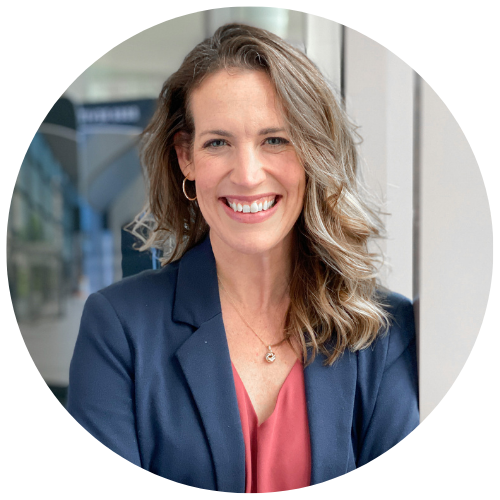
Bridget Haight
Today's Guests
